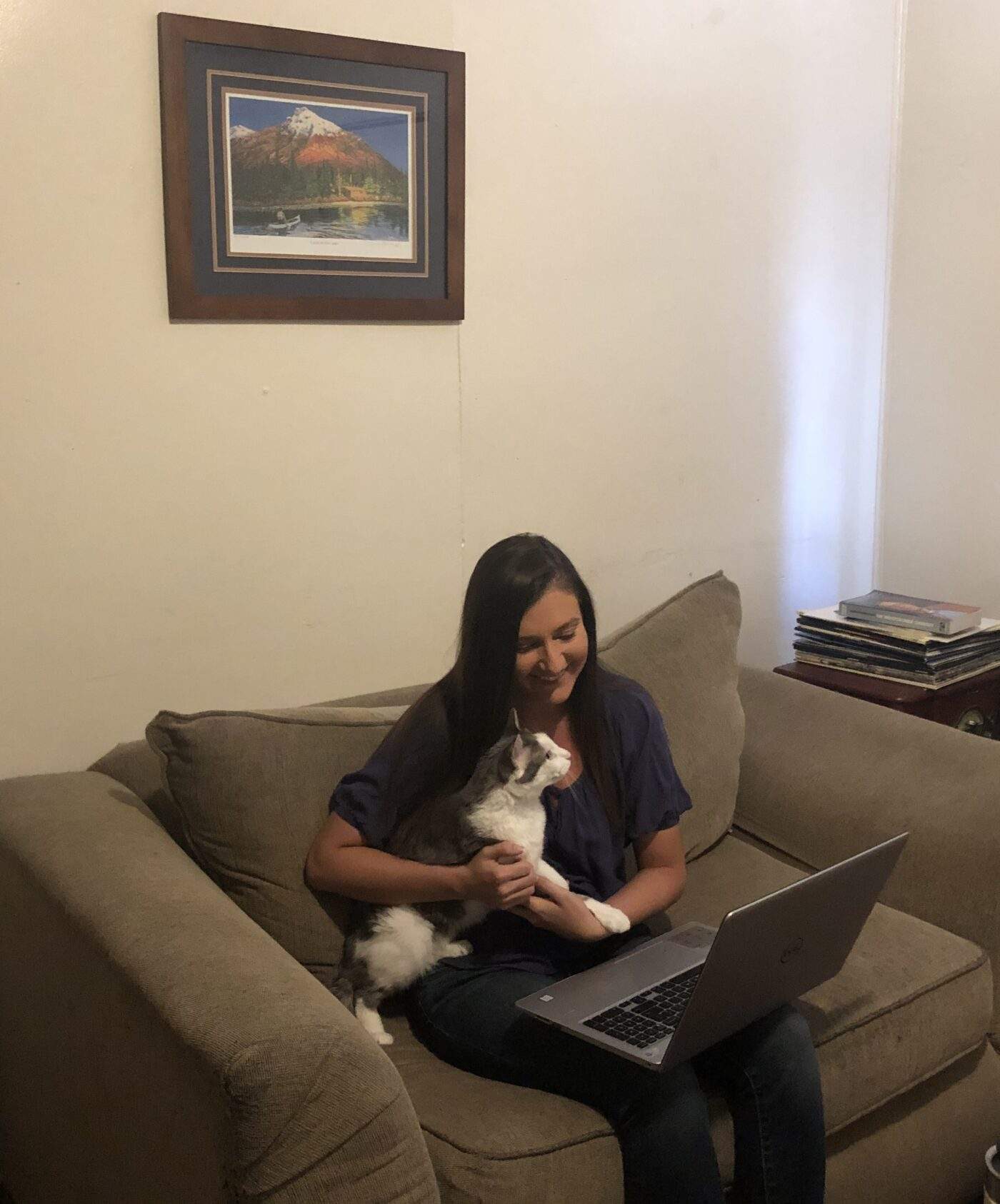As seen in many other workplaces, March 2020 resulted in the adoption of an unusual environment at the Sierra Institute – working remotely during a global pandemic. On March 16th, in the middle of a late season blizzard, we jumped on the phone lines for our (usually in-person) weekly staff meeting, where we discussed closing our office. As an East Coast transplant who lives alone, I was immediately concerned about the potential for negative effects to well-being for those in our rural communities who suddenly found themselves isolated amidst a crisis. My work as a Wildlife Biology Specialist doesn’t typically delve too deeply into the social science realm; however, much of SI’s work focuses on rural community well-being. As someone who was feeling particularly scared, and particularly alone – and thinking other people might be feeling that way, too – I launched into a spiel during our meeting where I emphasized the importance of us continuing to connect with each other to minimize the negative impacts of an unprecedented lifestyle full of Zoom meetings and six-foot circles.

Out of that meeting came the creation of the “Connect Committee,” which involved several staff members planning designated time each week dedicated to the maintenance, and further development of, coworker connections despite our physical distance. We became adept at various virtual platforms and used our newly honed proficiencies internally and with partners. We brainstormed potential activities for future staff development to come together and work on an activity or learn a new skill together.
We set up virtual activities to keep up morale, like virtual lunches, breaks, podcast chats, and film festival watch parties. Some weeks, we opted to simply have a “brain break,” where we would provide light-hearted prompts to discuss in groups; this felt more like sitting down at lunch with each other for genuine human conversation. Most recently, we used our Connect time to discuss the importance of diversity and inclusion, as well as considering what we can do to improve while acknowledging the challenges of creating a more diverse atmosphere in a rural locale.
Observing the adaptability and resilience of my coworkers has been inspiring. It reminded me that my work here is not solely focused on wildlife biology; the inner workings of the relationships between my coworkers, local community members, and partnering organizations are just as paramount. Promoting the well-being of those groups mirrors the work I do to maintain the health of sensitive wildlife populations – They all must be considered, cared for, and addressed appropriately to mitigate harm during trying times, be it humans adapting to living in a long-term pandemic situation or wildlife enduring changes to habitat from project efforts or climate change. If the pandemic has given me anything to be thankful for, it is a deeper awareness of the importance of dedicating time and attention to the connections in my life to allow them to thrive. I feel that I truly possess a better understanding of the people living in the communities who benefit from our forest health projects. Now, the analyses I curate on paper about spotted owl or Pacific fisher habitat take my mind to the interconnectedness of wildlife and the complex aspects of well-being for all those who call the Sierras home.
To learn more about how many different organizations are coping with the pandemic, check out our Lost Sierra Stories Podcast Series

